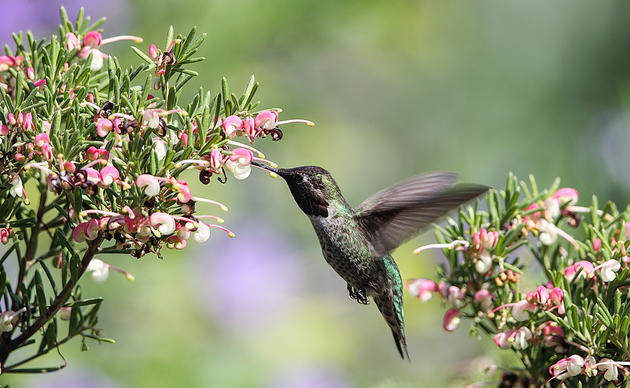As Facebook continues to grow, the company plans to increase occupancy in its existing Menlo Park campus that borders wetlands and Sloughs of the San Francisco Bay and the Don Edwards National Wildlife Refuge. In addition, Facebook plans to develop new buildings and parking structures. Two Audubon chapters – working alongside other environmental organizations in Silicon Valley – have helped ensure that Facebook ’s new campus is as bird-friendly as possible. The Santa Clara Audubon Society, Sequoia Audubon Society and the other groups commented extensively on the draft Environmental Impact Report for the project and negotiated with the company and advocated with the City of Menlo Park to mitigate some of the issues affecting migratory and resident birds. A key point of discussion was the risk of collision with new windows.
The other groups involved included the Committee for Green Foothills, Sierra Club (Loma Prieta chapter), Citizens Committee to Complete the Refuge, and the California Native Plant Society.
In their comments, the groups relied heavily on the work of the nearby Golden Gate Audubon in San Francisco, that resulted in the adoption of an ordinance for Standards for Bird-Safe Buildings, and well as bird-friendly guidelines created by the American Bird Conservancy.
The Final Environmental Impact Report recognized bird collision as a potentially significant impact under CEQA (“Project buildings and lighting at the West Campus would have the potential to injure or cause death to birds from collision and other factors.”) Mitigations for this potential impact, together with the Development Agreement, committed Facebook to several important actions.
For its new campus, Facebook has agreed to turn off unneeded lighting from dusk to dawn during spring and fall migration, and take a number of measures to minimize light pollution year-round. Moreover, the company’s new buildings will implement many of the City of San Francisco’s Standards for Bird-Safe Buildings,” which were adopted last year. Facebook has also agreed to take aggressive steps to control lighting at its existing campus, as well.
Other steps that Facebook has agreed to include educating employees and visitors about the habitat and the unique species in the wetlands and marshes that surround the campus, and adopting other "wildlife-friendly" behavior – addressing feral cats, employing wildlife-safe rodent control measures, and encouraging beneficial species (for example, installing bat houses).
By Garrison Frost
Monthly Giving
Our monthly giving program offers the peace of mind that you’re doing your part every day.




